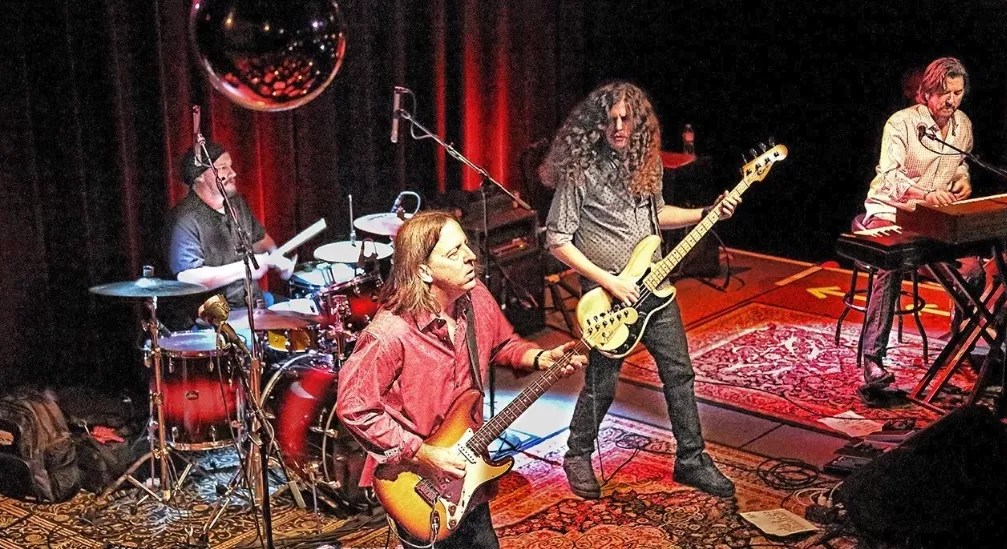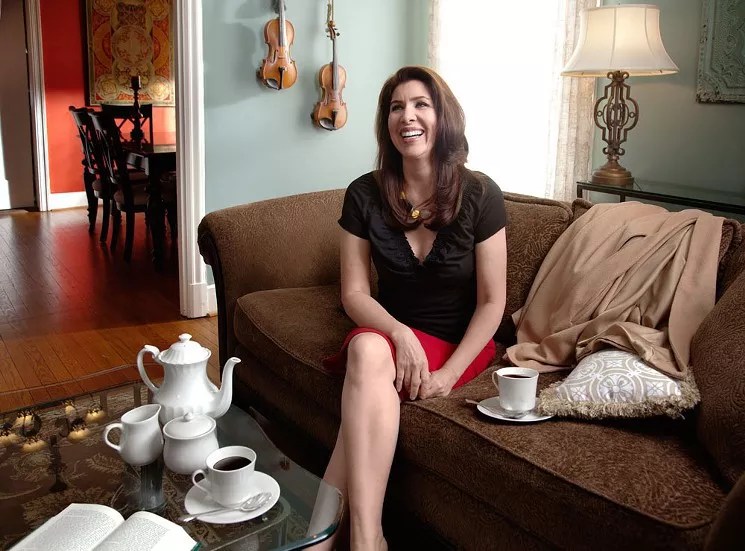
Jim Suhler via Twitter

Audio By Carbonatix
A new year is about to dawn over Dallas, and it’s going to be for all the marbles. I’m writing about it in a piece that will run next week. But I want to preview that a little by sharing some things I am learning about how we elect mayors here.
In a typical Dallas mayoral election, people 65 years or older have 22 times more say-so over who gets to be the next mayor than people between the ages of 18 and 34, according to a 2016 study by Portland State University and the Knight Foundation.
People 65 years or older have 22 times more say-so over who gets to be the next mayor than people between the ages of 18 and 34.
Wait. Don’t start telling me that’s unfair. The so-called “generational clout index” devised by the study isn’t about fair. It’s about who votes. The 22-to-1 ratio is a measurement of how likely it is that old people will vote in an election compared with young people.
So it’s not unfair. It’s just stupid. It’s especially stupid when you look at how far apart the generations are in their politics in Texas.
I know this comes across as nagging, but just look at the recent U.S. Senate race in Texas. If it had been up to voters between the ages of 18 and 29, Beto O’Rourke would have crushed Ted Cruz by more than 2 to 1, according to a post-election study by The Washington Post. A full 69 percent of Texas voters in that age bracket went for O’Rourke.
It’s almost reversed when you look at it from the other end of the telescope. Of the 65-and-older age bracket that rules Dallas mayoral elections, 62 percent went for Cruz.
Dallas is bluer than the full Texas, of course, and, speaking personally as a member of the geezer-American demographic profile, I’d like to be given a little break on this. I don’t think old Dallas people are quite as red as everybody else in Texas who’s old.
But for the sake of generalization and seeing things simply, I’m sure the basic paradigm is the same here as statewide. If you want a clear picture to symbolize the typical Dallas mayoral voter, think of a manicured lawn in North Dallas with a Cruz sign out by the curb.
If you want a clear picture of the person who does not choose the next mayor, think of somebody lined up in the rain outside the Kessler Theater waiting to see Jim Suhler and Monkey Beat.
The thing about Dallas is that we’re a relatively young city. According to the U.S. Census Bureau 2018 estimates, fewer than 10 percent of the population of the city is in that 65-plus category, but they’re the ones choosing all the mayors.
What difference does it make anyway? Well, you know, that’s the whole problem – seeing the difference it makes. It makes a huge difference, and it makes a difference right here, not off in some capitol building.
Example: In many ways the biggest decision the mayor and City Council have made about the kind of city we’re going to live in was in August 2017 when the full council voted to kill the Trinity toll road project. I’m writing about this in the year-end piece to run next week.
Forget the specifics. That’s not what we’re talking about here. In the broadest sense, the toll road vote was a choice between an old-fashioned, car-centric, carbon footprint, golf and beauty parlor kind of city versus a green, clean, outdoor city with a wilderness downtown.
That one went the right way for a change. They killed the toll road. Some … ahem, mature City Council members, notably Sandy Greyson, deserve credit for voting against the toll road. But the overall vote only went the way it did because a growing contingent of younger people on the City Council pushed it that way.
The mayor, many business leaders and the 65-and-older set generally were determined to pile up a huge mass of concrete almost on top of the river for a freeway that nobody even needed. So you get the dichotomy here. Cruz sign in the lawn: in favor of concrete. Waiting for Monkey Beat: in favor of wilderness.
And here’s the other striking characteristic of our mayoral elections right here in Dallas versus every other city in the country. As Stephen Young has reported here on numerous occasions, Dallas consistently scores rock-bottom last for overall voter turnout, no matter voter age, in mayoral elections among the nation’s 30 largest cities. Last time up to bat, just over 6 percent of eligible voters chose the sitting mayor.
In 2015, in a city of 1.34 million people, Mike Rawlings was elected mayor with 30,703 votes. That was down slightly from his tally the first time he ran. In 2011 Rawlings was elected by 31,088 voters.

In 2007 Angela Hunt got more people to vote against a highway than have ever voted to elect Mike Rawlings mayor.
Stanton Stephens
Don’t blame Rawlings. It’s just that nobody votes. There is, I am thrilled to report, a certain conspiracy theory about that. Now, I really hate conspiracy theories, and I never believe in them unless I like them. I can’t say I’m romantically in love with this particular conspiracy theory, but I do think it’s cute.
The theory is that the old guard in Dallas benefits from boring elections and therefore tries to keep them that way. We do know this. The fewer people vote, the more the votes of the old folks count. In an election in which almost nobody is voting anyway, it doesn’t take that many 65-plus voters to turn in a win.
Maybe the way to get the turnout up is to have Dallas Observer columnists run for mayor.
I went thumbing back through Dallas mayoral elections looking for better totals. I had to go all the way back to 2002, when Laura Miller, who used to do my job here at the Observer, ran for mayor and beat the old-guard candidate. Miller pulled down 72,983 votes. Still not much for a city this big but twice the totals that have kept Rawlings in office.
So what about this? Maybe the way to get the turnout up is to have Dallas Observer columnists run for mayor. Miller was real good-looking, young, bright and fashionable, and she was able to draw a lot of people who wanted her to be mayor.
Look at it from the other direction: I think I could rack up some pretty good numbers of people who would flock to the polls in panic just to stop me from becoming mayor. Hey, either way, at least the turnout is better.
Another thing struck me in looking at past election totals. Whenever the issue is something that does appeal to younger voters, the action goes up significantly. In 2007, a political neophyte in her 30s named Angela Hunt decided that the Trinity toll road was stupid. Never having done anything like it before, she gathered 80,000 signatures and raised $550,000 to force a referendum to kill the toll road.
The old guard mounted a fierce opposition to Hunt’s referendum and beat her at the polls by just under 6 percentage points, but here’s the number I found myself looking at. Hunt’s proposal to kill the toll road garnered 37,482 votes on her side. That’s significantly more than any vote total Rawlings has ever won.
In a sense, Hunt’s referendum won anyway, because it forced the old guard to tell a number of very naughty fibs to the public about the plan’s cost, its basic safety and the benefits it would offer. Apparently the voters believed the fibs – no ageist jokes about that, please – but the foes of the toll road did not believe.
In the years ahead, the anti-toll road forces pulled those untrue statements apart like a cheap suit, and eventually the City Council voted to kill the project.
Miller’s candidacy and the toll road issue make me wonder about the boring-elections conspiracy theory. I don’t actually believe anyone has to lift a finger to make our local elections more boring than they would be naturally. Something about our buck-stops-nowhere form of local government makes people think they can’t make a difference by taking time out of their lives to vote.
And, yes, if boring elections work for the old guard, then the old guard’s going to hope the elections stay boring. Why wouldn’t they?
On the other hand, if someone can make an election at least as interesting as Jim Suhler and Monkey Beat, then the whole city is going to flip upside down overnight. The minute those Beto voters decide they really do care what happens at City Hall – that they want the wilderness city, not the beauty parlor city – then everything changes. Dallas changes. It becomes a completely different place.
So the question for 2019 will be whether anybody can provide the kind of message and enthusiasm that would make that happen. Well, that’s one question. I personally will still have another question. Exactly what is Jim Suhler and Monkey Beat, anyway?